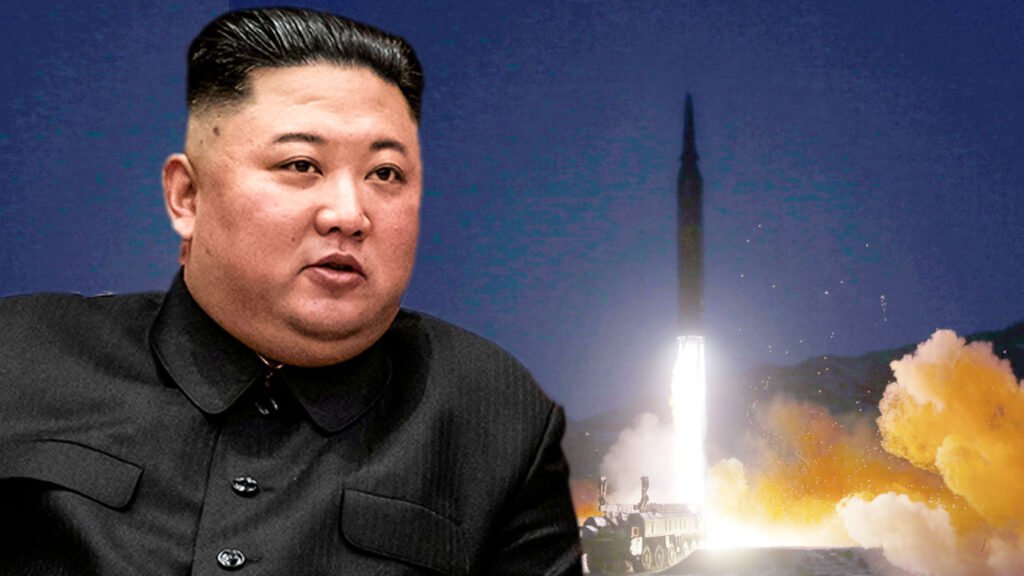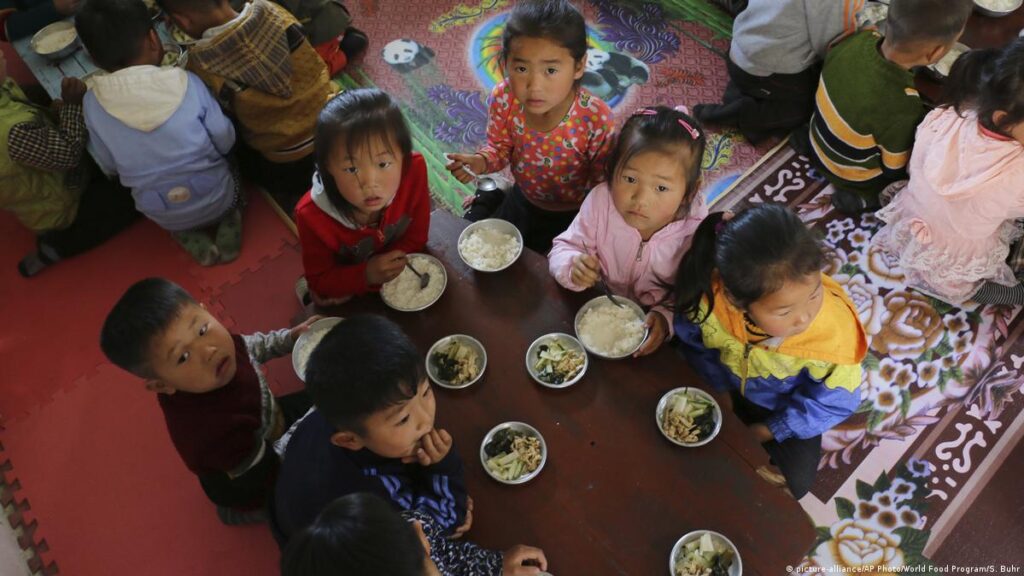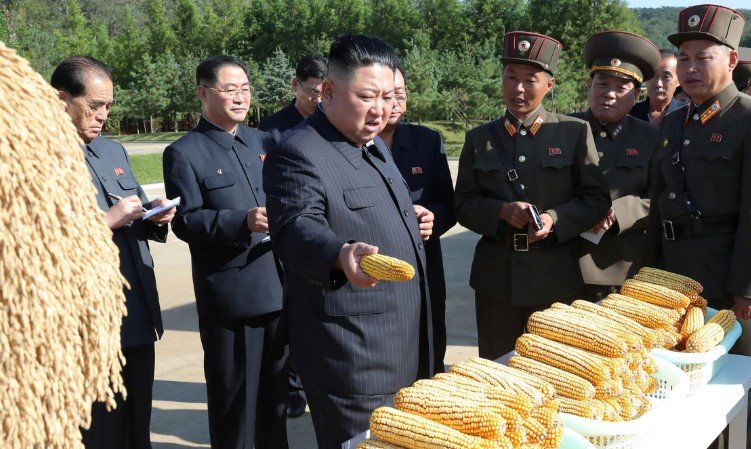The persistent food shortages in North Korea are causing rising concern, and last week, numerous sources warned that hunger fatalities were probable.
According to some analysts, the nation is at its worst point since the “Arduous March” famine of the 1990s, which resulted in mass starvation and the deaths of hundreds of thousands of people, or around 3-5% of the country’s 20 million-strong population at the time.
According to Lucas Rengifo-Keller, a research analyst at the Peterson Institute for International Economics, trade data, satellite images, assessments by the United Nations and South Korean authorities all indicate that the food supply has “dipped below the amount needed to satisfy minimum human needs” at this time.
Rengifo-Keller claimed that even if food was distributed fairly, which is very impossible in North Korea since the elite and military are given preference, “you would have hunger-related deaths.”
NORTH KOREA: Amid a shortage in food production, the country is on the brink of famine.
— IndiaToday (@IndiaToday) March 3, 2023
North Korea is witnessing a sudden food shortage, and people in the isolated nation are feared starving. What led to this crisis?#NorthKorea #KimJongUn #famine #foodshortage #NewsMo pic.twitter.com/xzQPOpyLTG
Officials in South Korea concur with that judgment; Seoul recently declared that it thought some regions of the nation were seeing hunger deaths. Few specialists contest its judgment, despite the fact that gathering reliable information to support those allegations is challenging due to the country’s remoteness.
According to the UN Food and Agriculture Organization, about half of North Korea’s population was undernourished even before the Covid outbreak.
Three years of seclusion and closed borders could only make things worse.
North Korean leader Kim Jong Un called for a “fundamental reform” in farming and state economic programs and the need to reinforce state control of agriculture during a four-day Workers’ Party meeting this week, demonstrating exactly how critical the situation has become.
Nonetheless, a number of specialists claim that Pyongyang is solely to blame for the issues. The epidemic exacerbated Pyongyang’s isolationist tendencies, which led to the construction of a second layer of fencing along 300 kilometers of its border with China and the restriction of what little cross-border trade was available.
Also, it has conducted a record number of missile tests over the past year, using up valuable resources.

Shoot-on-sight directives were implemented in August 2020 (at the border). a ban on travel and business, which has extended to the very little official trade that previously existed, according to Human Rights Watch senior researcher Lina Yoon.
According to data from Chinese customs, China sent 53,280 kg of cereals in grain or flakes form and roughly 56 million kilograms of wheat or maslin flour to North Korea in 2022.
The illicit commerce, which Yoon notes is “one of the key lifelines of the markets inside North Korea where regular North Koreans buy things,” has been choked off by Pyongyang’s crackdown.
When the borders were closed, instances of people smuggling Chinese goods into the nation by paying a border guard to turn a blind eye have virtually disappeared.
Numerous experts contend that years of economic mismanagement are the real issue, and that Kim’s plans to further tighten state control will only make matters worse.
“For agriculture to improve and for the people to have enough food, the North Korean borders must be opened, trade must resume, and these goods must be brought in. Yet, they currently prioritize seclusion and repression, Yoon claimed.
But, as Rengifo-Keller noted, it is not in Kim’s interest to permit the illicit trade of the past to resurface in this nation under dynastic leadership. The regime is afraid that a thriving entrepreneurial elite will undermine its authority.
Then there are Kim’s continued obsession with missile testing and his persistent rejection of neighborly offers of assistance.
The only way North Korea can escape this situation, according to South Korea’s Foreign Minister Park Jin, is to return to the negotiation table, accept our humanitarian offer to the North, and make a better decision going forward.

According to the prime minister, Han Duck-soo, the situation “is getting worse, our information shows, because it is obvious that their policies are altering… The chairman (Kim Jong Un) wants to put a lot of pressure on it to become a state-mandated food supply for their people, but that won’t work.
The Ministry of Unification in Seoul was quick to point out that Pyongyang still prioritizes its missile and nuclear programs over providing for its own population.
Vice spokesperson Lee Hyo-jung stated in a briefing last month that if North Korea had spent the money it spent on the missiles it launched last year on food supplies, it would have been sufficient to buy over one million tons of food, which is thought to be sufficient to cover North Korea’s annual food shortage.
According to Seoul’s agricultural development ministry, North Korea’s crop production dropped 4% from the previous year due to flooding and unfavorable weather.
Rengifo-Keller is concerned that the combination of these impacts and the regime’s “misguided approach to economic policy” could have a catastrophic effect on the already impoverished populace.
It “wouldn’t take much to push the country into famine” because of the chronically undernourished population, high rates of stunting, and deteriorating conditions.




